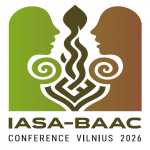6. Local expertise -the role of the native speaker
Linguistics is unique as a field of study in that the medium of discovery, the medium of exposition and the subject of inquiry are all the same: language. Much has been said elsewhere about the difficulty in gaining an intimate knowledge of a second language. Linguists, recognizing this, have sometimes tried to explain their methods and say what they are looking for. This is in contrast to traditional 'indirect' questioning which can be difficult to avoid. It would be a very sophisticated informant who made much sense out of an inquiry like 'Give me the second person dual subjunctive of "slice".' If language interviewees have been introduced to certain basic linguistic concepts it may be feasible to elicit some verb form and then say 'Now give me the reflexive of that', so that informants become less the passive respondents to carefully framed questions and to a greater extent active collaborators in the research.
Carrying the participation further it seems easier to teach a native speaker the principles and techniques of linguistics rather than for a linguist to attempt the near impossible task of gaining native speaker fluency of the language under study. The native speaker/linguist can then introspect on his own language and quickly gain insights into its structure which would take the outsider years to hit on. 11 A programme of this kind was begun in Australia in 1974 by the School of Australian Linguistics. 12 All students at the School have an Australian language as their first language. When graduates begin carrying out research it will be interesting to see to what extent their choice of subject material differs from their white counterparts in recording language. There is no reason why this sort of programme could not be duplicated in other Third World countries. In terms of recording priorities the presence of native speaker collectors would probably shift the emphasis to salvage work for the European collectors -depth studies being left for those who could go deepest! Such programmes are particularly relevant to a sound archive since it is probable that collectors who have native speaker fluency of the language being investigated will produce recordings of a quite different kind from researchers striving to overcome the difficulties of an intermediary language.
- See also Hale, K. 'On the use of informants in field-work' in Canadian Journal of Linguistics, Vol.10, No.2-3; 1965
- For further details contact School of Australian Linguistics, PO Batchelor, NT, 5794, Australia


